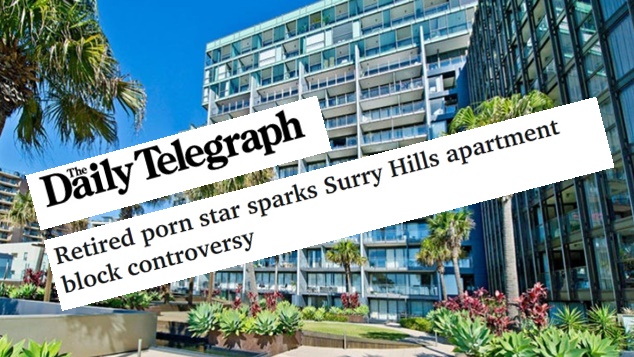
The Australian Press Council has ruled that The Daily Telegraph newspaper breached journalistic guidelines when it reported on a series of complaints in a Sydney Apartment block that were related to a adult film worker who was described as working from home in 2020.
The Press Council considered whether its Standards of Practice were breached by an article published in The Daily Telegraph online headed “Retired porn star sparks Surry Hills apartment block controversy” on 11 November 2020. The council found the publisher had put an unnecessary focus on the sexuality of the people involved in the story.
The sub-headline of the article stated “A noisy retired gay porn star has been told to behave and show respect to his neighbours after police were called four times, causing angst in his apartment building”.
The article went on to report that “residents at a landmark apartment block in Sydney’s gay heartland have been told to show more respect after reports a retired US porn star was sparking conflict by working from home”.
The article reported that police “had been called four times this year to the same apartment” and that “it is understood the calls have all involved ‘concern for welfare’” and “one involved an argument between the porn star and the boyfriend he is staying with”. The article also included an embedded video of Mardi Gras 2020 and an image of the rainbow flag flying over “Sydney’s gay community in Darlinghurst”.
The Council noted that they had consistently stated over a long period that publications should exercise great care to not place unwarranted emphasis on characteristics of individuals such as race, religion, nationality, country of origin, gender, sexual orientation, marital status, disability, illness or age.
The Council noted that the resident may have described himself in social media accounts as a ‘gay porn star’. However, given the resident’s sexuality was not reported to be a contributing factor in the noise complaints, identifying him as such in the sub-headline of the article, could lead some readers to conclude that his sexuality was either the cause of, or a factor in, the complaints and could contribute to substantial prejudice to the gay community.
The Council said that by prominently referring to the resident’s sexuality in the sub-headline, the publication failed to take reasonable steps to avoid contributing to substantial prejudice and that there was not sufficient public interest justifying doing so.
While the story remains online without substantial alteration, a link to the Press Council findings has been added.
OIP Staff
You can support our work by subscribing to our Patreon
or contributing to our GoFundMe campaign.






